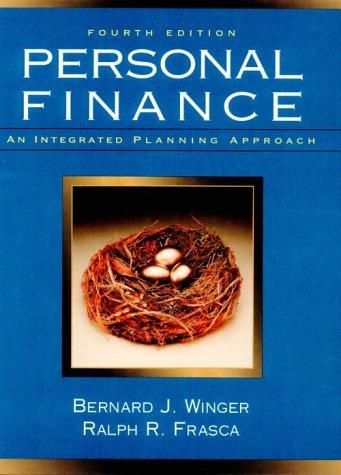

31. You are a manager at Percolated Fiber, which is considering expanding its operations in synthetic fiber manufacturing. Your boss comes into your office, drops a consultant's report on your desk, and complains, "We owe these consultants $1 million for this report, and I am not sure their analysis makes sense. Before we spend the $25 million on new equipment needed for this project, look it over and give me your opinion." You open the report and find the following estimates (in thousands of dollars): 1 Year 1 2 9 10 2 Sales Revenue 30,000 30,000 30,000 30,000 3 Costs of Goods Sold 18,000 18,000 18,000 18,000 4 Gross Profit 12,000 12,000 12,000 12,000 5 Selling, General, and Administrative Expenses 2,000 2,000 2,000 2,000 6 Depreciation 2,500 2,500 2,500 2,500 7 EBIT 7,500 7,500 7,500 7,500 8 Income Tax 1,575 1,575 1,575 1,575 9 Net Income 5,925 5,925 5,925 5,925 All of the estimates in the report seem correct. You note that the consultants used straight-line depreciation for the new equipment that will be purchased today (year 0), which is what the accounting department recommended. They also calculated the depreciation assuming no salvage value for the equipment, which is the company's assumption in this case. The report concludes that because the project will increase earnings by $5.925 million per year for 10 years, the project is worth $59.25 million. You think back to your glory days in finance class and realize there is more work to be done! First, you note that the consultants have not included the fact that the project will require $10 million in working capital up front (year 0), which will be fully recovered in year 10. Next, you see they have attributed $2 million of selling, general, and administrative expenses to the project, but you know that $1 million of this amount is overhead that will be incurred even if the project is not accepted. Finally, you know that accounting earnings are not the right thing to focus on! a. Given the available information, what are the free cash flows in years 0 through 10 that should be used to evaluate the proposed project? b. If the cost of capital for this project is 14%, what is your estimate of the value of the new project? Olyzing the Droiect 31. You are a manager at Percolated Fiber, which is considering expanding its operations in synthetic fiber manufacturing. Your boss comes into your office, drops a consultant's report on your desk, and complains, "We owe these consultants $1 million for this report, and I am not sure their analysis makes sense. Before we spend the $25 million on new equipment needed for this project, look it over and give me your opinion." You open the report and find the following estimates (in thousands of dollars): 1 Year 1 2 9 10 2 Sales Revenue 30,000 30,000 30,000 30,000 3 Costs of Goods Sold 18,000 18,000 18,000 18,000 4 Gross Profit 12,000 12,000 12,000 12,000 5 Selling, General, and Administrative Expenses 2,000 2,000 2,000 2,000 6 Depreciation 2,500 2,500 2,500 2,500 7 EBIT 7,500 7,500 7,500 7,500 8 Income Tax 1,575 1,575 1,575 1,575 9 Net Income 5,925 5,925 5,925 5,925 All of the estimates in the report seem correct. You note that the consultants used straight-line depreciation for the new equipment that will be purchased today (year 0), which is what the accounting department recommended. They also calculated the depreciation assuming no salvage value for the equipment, which is the company's assumption in this case. The report concludes that because the project will increase earnings by $5.925 million per year for 10 years, the project is worth $59.25 million. You think back to your glory days in finance class and realize there is more work to be done! First, you note that the consultants have not included the fact that the project will require $10 million in working capital up front (year 0), which will be fully recovered in year 10. Next, you see they have attributed $2 million of selling, general, and administrative expenses to the project, but you know that $1 million of this amount is overhead that will be incurred even if the project is not accepted. Finally, you know that accounting earnings are not the right thing to focus on! a. Given the available information, what are the free cash flows in years 0 through 10 that should be used to evaluate the proposed project? b. If the cost of capital for this project is 14%, what is your estimate of the value of the new project? Olyzing the Droiect








